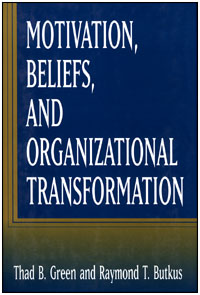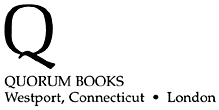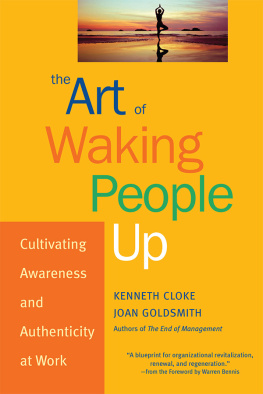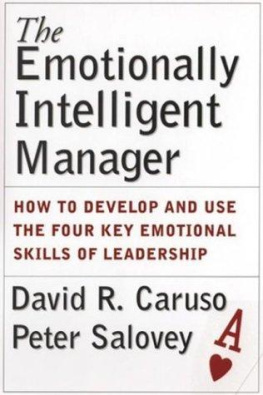Cover

| title | : | Motivation, Beliefs, and Organizational Transformation |
| author | : | Green, Thad B.; Butkus, Raymond T. |
| publisher | : | Greenwood Publishing Group |
| isbn10 | asin | : | 1567202829 |
| print isbn13 | : | 9781567202823 |
| ebook isbn13 | : | 9780585386041 |
| language | : | English |
| subject | Employee motivation, Organizational change. |
| publication date | : | 1999 |
| lcc | : | HF5549.5.M63G747 1999eb |
| ddc | : | 658.3/14 |
| subject | : | Employee motivation, Organizational change. |
Page i
MOTIVATION, BELIEFS,
AND ORGANIZATIONAL
TRANSFORMATION
Page ii
This page intentionally left blank.
Page iii
MOTIVATION, BELIEFS,
AND ORGANIZATIONAL TRANSFORMATION
Thad B. Green and Raymond T. Butkus

Page iv
Library of Congress Cataloging-in-Publication Data
Green, Thad B.
Motivation, beliefs, and organizational transformation / Thad
B. Green & Raymond T. Butkus.
p. cm.
Includes bibliographical references and index.
ISBN 1567202829 (alk. paper)
1. Employee motivation. 2. Organizational change. I. Butkus,
Raymond T. II. Title.
HF5549.5.M63G747 1999
658.314dc21 9851660
British Library Cataloguing in Publication Data is available.
Copyright 1999 by Thad B. Green and Raymond T. Butkus
All rights reserved. No portion of this book may be reproduced, by any process or technique, without the express written consent of the publisher.
Library of Congress Catalog Card Number: 9851660
ISBN: 1567202829
First published in 1999
Quorum Books, 88 Post Road West, Westport, CT 06881
An imprint of Greenwood Publishing Group, Inc.
www.quorumbooks.com
Printed in the United States of America

The paper used in this book complies with the
Permanent Paper Standard issued by the National
Information Standards Organization (Z39.481984).
10 9 8 7 6 5 4 3 2 1
Page v
Contents
| Preface | vii |
| Acknowledgments | xiii |
| Part I | A New Model for Managing Change |
| 1 | The Key to Managing the Emotions of Change | 3 |
| 2 | Solving Motivation and Performance Problems | 15 |
| Part II | Applying the Change Model with Individuals, Teams, and Organizations |
| 3 | Leading Individuals to Change | 33 |
| 4 | Leading Teams to Change | 45 |
| 5 | Leading Organizations to Change | 55 |
| 6 | Managing Routine Organizational Change | 67 |
| Part III | Applying the Model to Large-Scale Change |
| 7 | Systematic Applications and Implementation Strategies | 81 |
| 8 | Managing Change from Top to Bottom:
A Case Study of Large-Scale Change | 95 |
Page vi
| Part IV | The BCS/Middle Markets Story |
| 9 | The Setting for Change | 109 |
| 10 | Change and Its Emotional Consequences | 123 |
| 11 | Initiating the Change Process | 135 |
| 12 | Cascading Change | 147 |
| 13 | Outcomes and Measured Results | 159 |
| Part V | Recommendations for Successful Change |
| 14 | A Formula for Managing Change | 177 |
| 15 | Twelve Change-Management Lessons | 189 |
| Annotated Bibliography | 201 |
| Index | 205 |
Page vii
Preface
Improving motivation at work in order to better manage organizational change is the central topic of this book, which was the joint effort of two people: Thad Green, who developed the change model called the belief system of motivation and performance, and Raymond Butkus, a longtime AT&T executive who initiated and managed the most extensive application of the belief system.
The change model that you will read about in this book is entirely my own creation, but it evolved from the research of a long line of thinkers in the twentieth century who focused on the issue of motivation at work. Among them, the one who had the greatest influence on me was Victor Vroom. A prominent figure in the academic world during the 1960s and 1970s, Vroom was a psychologist who taught at a number of prestigious schools during his career, including the Carnegie Institute of Technology and Yale University. One early book of his, Work and Motivation, published in 1964, is now considered a seminal work in the field of organizational psychology.
Vroom was one of the chief proponents of what has become known as the expectancy theory of motivation. I was never a student of Vrooms, nor did I read his books while I was at school. In fact, it wasnt until 1977, at the tail end of my own career as a professor of management, that I first learned about Victor Vroom and his version of the
Page viii
expectancy theory. I have to admit that, at first, I really didnt understand much of what Vroom was writing about. Even though I was an academician myself and had published my own research studies, his books seemed very complicated to me, and it took a long time for Vrooms expectancy theory to sink in. But once it finally did, I felt I had discovered something that not only was sound theoretically, but also might have some practical value.
There were two reasons why I found Vrooms theory to be so appealing. One was that it seemed very logical; intuitively, I felt it was true. But it also seemed a lot more comprehensive than what other thinkers had come up with to explain the same phenomenon: what motivates people at work. Unlike the famous trailblazers in his fieldresearchers like Douglas McGregor and Frederick HerzbergVroom went beyond the idea that people are motivated simply by being offered rewards or desirable outcomes. There are other factors that come into play, Vroom said. These are the expectations that people have about whether those outcomes can realistically be achieved and whether theyll be truly satisfying. When it comes to motivation, in short, what people believe is just as important as what theyre offered.
Eventually, followers of Vroom refined his theory and codified the expectations into three distinct beliefsessential preconditions for motivation at work. The first is the belief people hold that they can perform well enough to get what theyre offered. The second is the belief that they will actually get what theyre offered. And the third is the belief that they will find what theyre offered to be satisfying to them.
Next page











